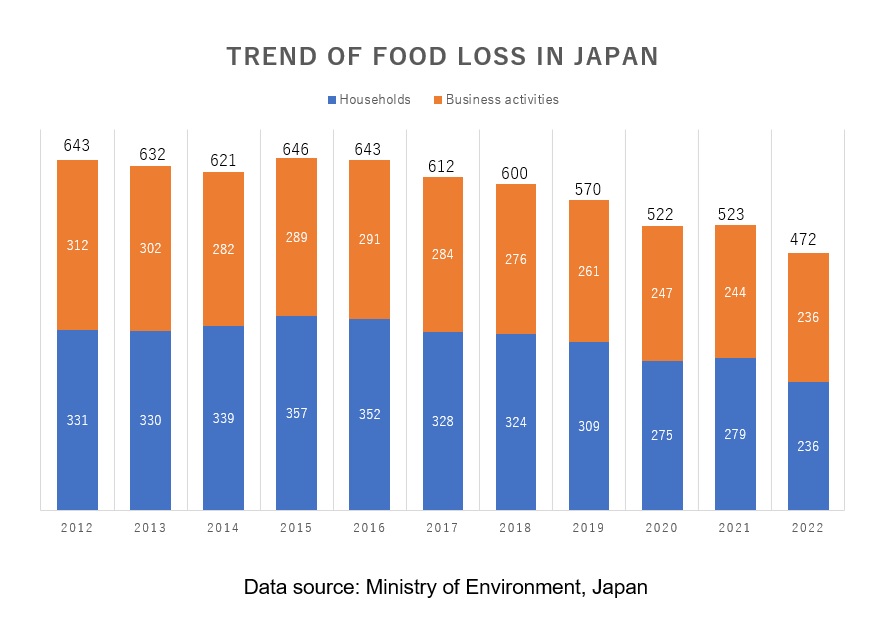Food loss in Japan
4/1 2025
Author: Eiji Hosoda
Food loss is one of the serious and typical waste problems common in developed countries. It is amazing and even appalling to see that people in developed countries are disposing of edible part of food as waste on one hand while more than 7million people are starving in mainly developing countries on the other. In Japan, the amount of food loss which is defined as edible part of food waste is nearly 10% of the total waste discharged (municipal solid waste plus industrial waste).
To cope with the problem, the Japanese government introduced two acts; one is the food-waste recycling act which was enforced in 2001, and the other is the act for reducing food loss which was enforced in 2019. The former is the act which encourages food-related business actors to promote recycling of food waste, while the latter requests the government, local authorities, food-related business actors and consumers to avoid generation of food loss and encourages them to cooperate one another for reducing food loss.
It is worth mentioning that these acts do not oblige the related actors to promote food recycling nor to avoid generation of food loss. Rather, those actors are given a driving force for promotion of food-waste recycling and avoidance of generation of food loss. Thus, the effects of the acts might be considered limited. Yet, things are not so simple.

The amount of food loss was 6.43 million tons in 2012, but it decreased gradually to 4.72 million tons in 2022, although the amount increased in 2015and 2021 temporarily, compared with a year earlier. Both households’ food loss and business food loss decreased at the same speed. This fact may possibly show that the efforts of the related actors, supported by the acts, have been effective for reducing the amount of food-loss.
Ishimura, Shinkuma, Takeuchi and Hosoda (2024) shows that the food-loss reduction goal set by municipalities has been effective for avoidance of generation of food loss. The result implies that implicit cooperation among consumers, food-related business actors and municipalities is a powerful tool for avoiding food loss in Japan.
References
Ishimura, Y., T. Shinkuma, K. Takeuchi and E. Hosoda (2024) “The effects of regional goal setting of household waste”, Ecological Economics, Vol. 215, January 2024, https://authors.elsevier.com/sd/article/S0921-8009(23)00278-1.
